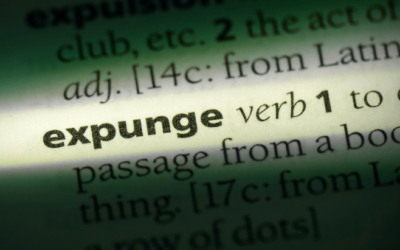Massachusetts Governor Charlie Baker signed legislation on Thursday to amend the state’s marijuana laws, approving the addition of social equity provisions and other changes to cannabis regulations in the Bay State. Baker approved all but one of the provisions of the bill, which is the first overhaul of the state’s cannabis regulations since voters approved recreational pot use in 2016.
Baker said in a statement that he supports “many of the provisions that this bill adopts to improve regulation of the cannabis industry” as well as “the bill’s efforts to expand opportunities for social equity businesses.”
The compromise bill, which was passed by state lawmakers in the early morning hours of August 1, aims to increase diversity in Massachusetts’ cannabis industry by creating a new social equity trust fund. The program will receive 15% of the revenue from the Marijuana Regulation Fund, which is funded by cannabis taxes, application and licensing fees and penalties levied on licensed cannabis companies. Funds in the social equity trust fund will be dedicated to providing grants and loans to prospective cannabis business owners, focusing on communities of color and those harmed by the nation’s failed prohibition policies.
“This law will rebalance the playing field, where so far wealthy corporations have been able buy their way through the licensing process and too many local, small business owners and Black and brown entrepreneurs have been locked out,” said Senator Sonia Chang-Díaz, the co-chair of the state legislature’s Cannabis Policy Committee. “The reforms and funding we fought so hard for will be game changers, putting Massachusetts back among the leading states for racial justice in our economic policy on cannabis. I’m so grateful to the many community members and grassroots leaders who came together and held the state’s feet to the fire to make this happen.”
At a meeting of the Cannabis Control Commission (CCC) held on Thursday before Baker signed the legislation, commissioner Ava Callender Concepcion encouraged her fellow commissioners to “take a moment today to recognize the significance of this moment and the magnitude of this impact.”
“By no means am I saying that this single piece of legislation will solve every issue that’s facing the cannabis industry, but it is a massive step,” Concepcion said. “This is monumental.”
Cannabis Activists Applaud New Legislation
Shanel Lindsay, a cannabis advocate who campaigned for the 2016 ballot measure that legalized pot in Massachusetts, said that the governor and lawmakers “have made history with this vital — and overdue — grant and loan fund.”
“This bill is an important step forward in undoing the harms of prohibition and over-policing and will provide an important path for families of color to create jobs in their community and generate generational wealth,” said Lindsay, the co-founder of Equitable Opportunities Now.
The bill also gives the CCC the authority to review and approve host community agreements, which cannabis businesses are required to develop with the local jurisdictions where they are located. The agreements will also be limited to the first eight years a business operates, with limits placed on fees required of the companies. Community impact fees will be limited to 3% of a company’s gross receipts and must be “reasonably related” to costs incurred by local governments to implement cannabis legalization and regulation.
Additionally, the legislation allows cannabis companies to be treated as legal businesses under the state tax code, giving them access to standard business deductions denied under federal tax regulations. Sieh Samura, owner and CEO of the Yamba Market dispensary in Cambridge and an advocate for minority representation in cannabis, said that businesses in the industry can face tax burdens of up to 75%.
“It makes the barrier to entry higher and presents a lot of obstacles for entrepreneurs, especially for those with less resources,” he said.
Samura added that the new law will make taxes fairer and provide oversight to the stiff competition for host community agreements while giving funding to help minority entrepreneurs enter the business.
“We’ve got to see the money start flowing, and the earlier it starts flowing, the earlier we’ll see an effect in the bigger market on how many equity businesses there are, how much diversity there is,” Samura said.
Other sections of the bill approved by Baker include provisions to simplify expunging past weed-related convictions and a process for local communities to hold a vote for the approval of cannabis consumption lounges.
Governor Nixes Exploring Medical Pot in Schools
Baker vetoed a provision in the legislation that would have studied the feasibility of allowing students to use cannabis-based therapies in schools. Under that section, the CCC, the Department of Elementary and Secondary Education and the Department of Public Health would be directed to study and develop recommendations for “eliminating obstacles and expanding accommodations to possess, administer and consume medical use marijuana and public and private schools” among students who possess valid medical cannabis cards.
In a statement to lawmakers, Baker said that the measure as written “is highly prescriptive — making it clear that the agencies charged with producing the study must identify ways to make medical marijuana widely available within schools, rather than considering whether such an allowance is advisable.”
”The voter initiatives that legalized medical marijuana in 2012 and 2016 included strong measures to keep marijuana away from K-12 schools and school children. Both laws explicitly stated that marijuana would in no circumstance be permitted on school grounds,” Baker added. “Because the study proposed in section 26 clearly works against these important and well-established protections and disregards the clear intentions of the voters in legalizing marijuana use, I cannot approve this part of the bill.”
The post Massachusetts Governor Signs Cannabis Social Equity Bill appeared first on High Times.
Massachusetts Governor Charlie Baker approved legislation to overhaul the state’s marijuana regulations, including social equity provisions to encourage diverse representation in the legal cannabis industry.
The post Massachusetts Governor Signs Cannabis Social Equity Bill appeared first on High Times.Massachusetts, News, CCC, Governor Charlie Baker, Senator Sonia Chang-Díaz, Social Equity


